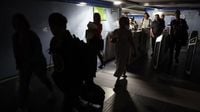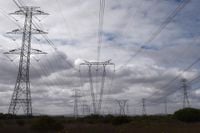On April 28, 2025, a massive power outage struck the Iberian Peninsula, affecting Spain, Portugal, Andorra, and parts of France. The outage began around 12:30 PM local time, plunging millions into darkness and disrupting daily life across these regions. As the situation unfolded, many residents found themselves unable to make phone calls, access the internet, or use public transportation.
According to El Pais, the outage rendered mobile communication nearly impossible, with WhatsApp messages delayed and SMS texts taking hours to send. Vodafone Spain reported that 70% of its network remained temporarily operational thanks to backup generators, but the company urged customers to use mobile services responsibly to avoid overloading the system.
Emergency services, including the vital 112 hotline, were particularly strained. Authorities advised the public to call only in extreme emergencies, as they relied on generators to function. In Lisbon, the road signaling system also failed, prompting officials to warn residents against unnecessary travel.
In Madrid and Barcelona, residents took to the streets in search of a phone signal, while the Atocha station in Madrid was evacuated due to the outage. The Spanish Minister of Transport, Oscar Puente, stated that train services would not be fully restored that day, emphasizing that medium and long-distance trains were unlikely to operate.
As the power outage continued, Red Eléctrica Española (REE) announced that it was mobilizing all available resources to restore power. The company estimated that it would take between six and ten hours to return to normalcy, although there were no guarantees of when that would be. "We cannot speculate on the causes of the outage at this time," said Eduardo Prieto, REE's director of operations. "We will analyze everything in detail as soon as possible to clarify the cause of the outage."
The outage was unprecedented, with the Spanish Prime Minister, Pedro Sanchez, describing it as an extraordinary event. He expressed hope for a rapid restoration of electricity, citing the reactivation of gas and hydroelectric plants across the country. Sanchez mentioned that power had already been restored in several areas of northern and southern Spain, thanks to interconnections with France and Morocco.
Despite the efforts, the situation remained dire. According to Eurocontrol, the outage had significant effects on air traffic, impacting departures and arrivals at major airports, including those in Lisbon, Barcelona, and Madrid. Passengers were advised to check with their airlines for updates, as delays were expected.
In addition to the chaos in transportation, the outage also affected the Madrid Open tennis tournament, which had to cancel both day and night sessions to ensure safety. The organizers announced on social media that they were working to restore power as quickly as possible.
As the situation developed, authorities in Portugal echoed similar concerns, stating it was impossible to predict when normalcy would return. The Portuguese electricity network manager, REN, activated all recovery plans in coordination with European energy producers and operators.
In France, the outage had a brief impact on the Basque Country, where some households experienced temporary power loss. The French high-voltage electricity network manager, RTE, assured that there was no risk of contagion from the incident, and their teams were ready to assist Spain by supplying additional electricity.
The Spanish Nuclear Safety Council confirmed that four nuclear power plants had automatically shut down due to the outage, a standard safety procedure. The council stated that the reactors were operating safely with backup diesel generators and that there had been no impact on workers or the environment.
As the day progressed, anxiety grew among residents in affected areas. Many rushed to ATMs to withdraw cash, fearing a prolonged outage would disrupt banking services. Streets were filled with people trying to find a mobile signal, and traffic lights were inoperative, causing significant congestion.
In a statement on social media, the National Cybersecurity Institute of Spain urged citizens to conserve their phone batteries and only contact emergency services when absolutely necessary. They emphasized the importance of avoiding chaos on the roads as the situation unfolded.
With no clear indication of the cause of the outage, speculation began to arise. However, President of the European Council, António Costa, stated that there were no signs of a cyberattack at this stage, reassuring the public that the situation was being closely monitored.
As night fell, the power restoration efforts continued, with REE reporting some success in restoring electricity to various regions. However, the full scope of the outage's impact on daily life, businesses, and transportation remained to be seen. The Spanish government held an extraordinary meeting of the national security council to address the crisis and coordinate recovery efforts.
In summary, the power outage of April 28, 2025, marked a significant event in the recent history of the Iberian Peninsula, affecting millions and leading to widespread disruption across various sectors. As authorities worked tirelessly to restore power and determine the cause of the outage, residents faced the challenges of navigating a day without electricity.






